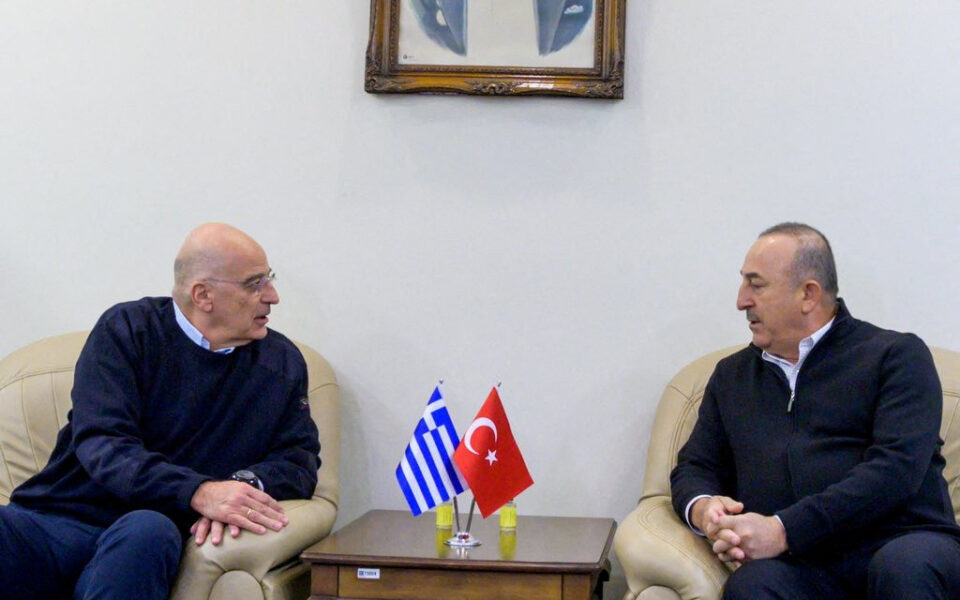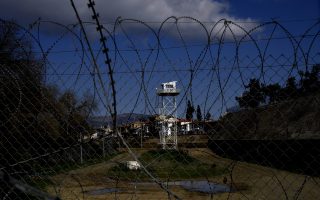A different approach to Greek-Turkish relations

Repeated failures to resolve Greek-Turkish disputes in recent decades have come to be treated as a fact of life. The consensus in Greece is that justice is on our side, whereas the other side is always criticized as intransigent and aggressive. Apart from the complete deadlock, which often reflects the frustrating fate of the Cyprus problem, the “national correctness” as it were mandates a set of predetermined views and demonizes any alternative proposal, even if that is based on international law or is an established international practice. However, the citing by the occasional champions of “national truth” of ostensibly “rightful national claims” can only have negative repercussions for Greece.
The cultivation of fear, the consolidation of false information and distorted assessments, and the construction of all sorts of national myths result in the constant negation of dialogue aimed at resolving disputes around the idea of mutual benefit.
Meanwhile, complacent navel-gazing fuels national insecurity, which in turn serves as an excuse for mammoth armaments programs that put an enormous financial strain on both nations, while holding their growth and prosperity to ransom.
Many issues seem impossible to resolve, while in fact they are not. In recent decades, Turkey has been increasingly challenging parts of Greek sovereignty, a practice that is often accompanied by verbal threats. Meanwhile, Greece insists on maximalist claims to sovereignty zones of questionable legality (including, for example, claims regarding Greek airspace and the tendency for the unilateral demarcation of territorial waters and exclusive economic zones).
Both Aegean rivals have been taken hold by the conviction that “the right is on our side.” But this is not true. There are two types of irrational certainties: One is to dispute the acquis and the established rights of the other side; the other is to declare your sovereign rights on shaky foundations. Some of the certainties being reproduced by the Greek side, as well as the Turkish side, are hard to substantiate legally. At the same time, both the Greek and Turkish publics are very unlikely to question the certainties that have been cultivated by governments and the media over the years.
Who can disregard the fact that seeing facts for what they are and bilateral cooperation (or recourse to mediation or international arbitration) are both necessary conditions not only for the resolution of disputes but also for the utilization and preservation of shared resources? For example, fighting plastic pollution in the Aegean Sea can only be effectively achieved with a joint campaign, while the exploitation of fisheries, resources and renewable energy also requires a synergy. In a world dealing with climate crisis, cooperation is not an option but a survival skill.
What we would like to achieve is to (re)start a dialogue in Greece regarding the issues which really traumatize Greek-Turkish ties. We want to cancel the automatic a priori questioning of the other side’s trust, which undermines the chances of a settlement. We want to contribute to confidence-building, because the most important condition for every form of dialogue that aims to promote meaningful coexistence between Greece and Turkey is that both sides rid themselves of whatever poisons bilateral ties, jeopardizes peace, prevents the development of natural resources and undermines public prosperity.
Such an approach ought to break with the taboo around Greece’s “national issues.” The Greek side must give priority to the following topics with the aim of finding win-win solutions through sincere dialogue and bilateral negotiations with Turkey (preferably on a bilateral basis, without mediators or arbitrators):
– Final demarcation of maritime borders.
– Delimitation of zones where states can exercise their sovereign rights for the purpose of exploring and exploiting natural resources (EEZ, continental shelf).
– Demarcation of the Greek airspace.
It is also necessary that there is a dialogue, agreements or termination of unilateral claims on issues such as:
– Energy policy, synergies where possible (renewable energy sources). Talks on hydrocarbons.
– Environmental policy, synergies, especially in relation to the Aegean Sea.
– Harmonization of policies on the minorities in both countries, in accordance with the European acquis.
– Agreement for a more humane management of refugee and migrant flows.
With regard to the Cyprus issue, Nicosia has already wasted a great deal of the diplomatic capital created by EU membership. The conditions for dialogue and the prospects for a meaningful coexistence of the two communities should be discussed. Or things will lead to the island’s permanent division, thereby consolidating the effects of Turkey’s 1974 invasion.
In conclusion, what we deserve as a democratic society is a continuous pluralistic discussion in search of solutions aimed at mutual benefit. Indirect or direct cooperation leads to multiple benefits for both sides. Mutual benefit means double benefit; it is a benefit that will be based on common security and stability in the region.
Therefore, the implementation of sustainable policies for the future, securing consent on the basis of international law, is in Greece’s interest at this critical turning point in Greek-Turkish relations.
Apart from the great devastation they caused, the recent earthquakes in Turkey could deconstruct the rhetoric of tension of recent years, as happened with the 1999 earthquakes. Hopefully, an opportunity has been created for an effective rapprochement.
Alexis Heraclides is professor of international relations and conflict resolution at the Panteion University of Social and Political Sciences. Andreas Stergiou is a professor in the Department of Economics at the University of Thessaly. Theodoros Tsikas is a political scientist-international relations expert. Konstantinos Tsitselikis is professor in human rights and international organizations at the University of Macedonia.





